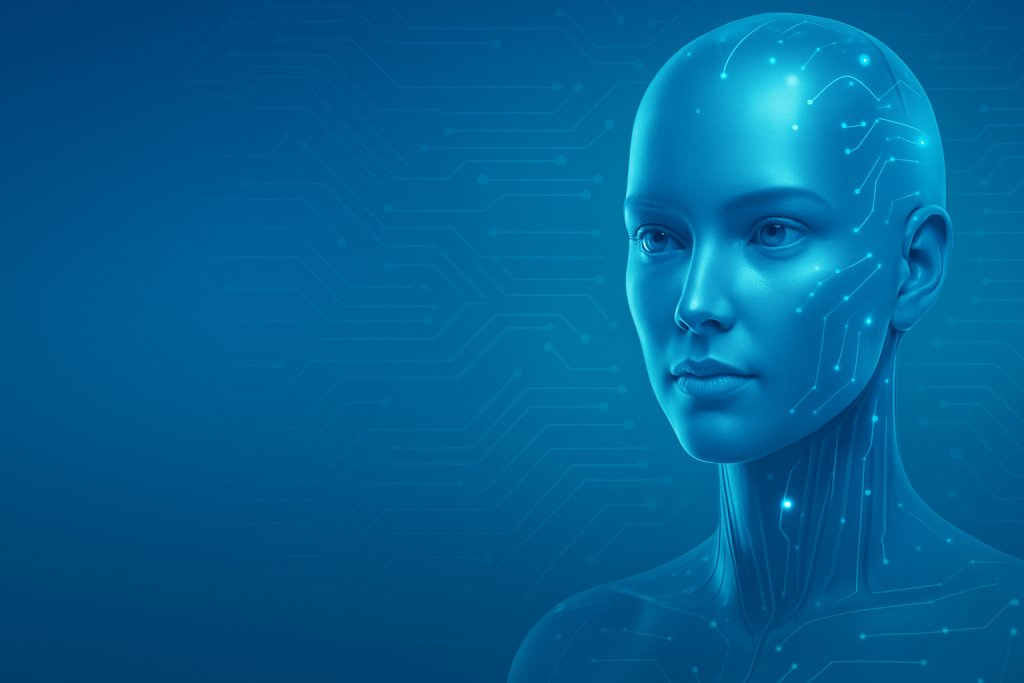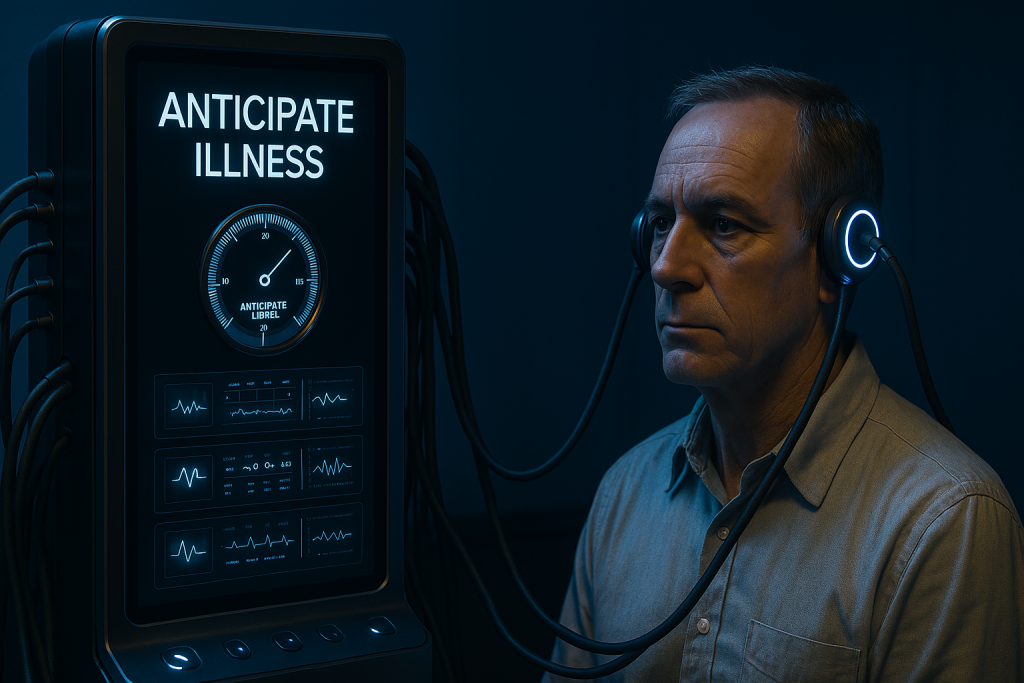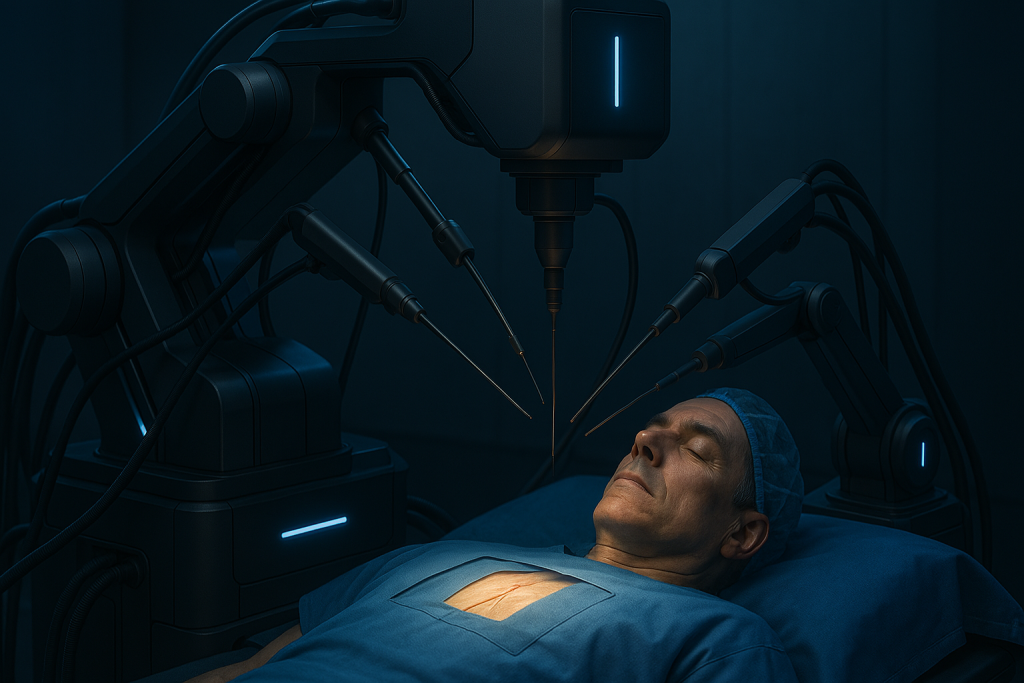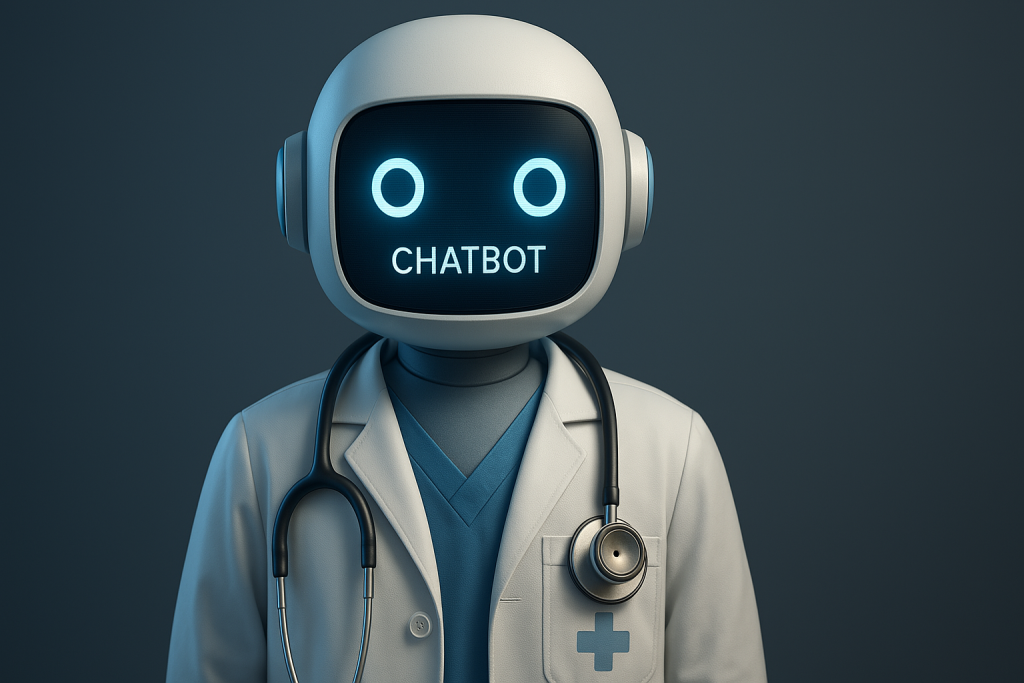Physical Address
304 North Cardinal St.
Dorchester Center, MA 02124
Physical Address
304 North Cardinal St.
Dorchester Center, MA 02124


How AI Is Transforming Healthcare in 2025 | AI in Medicine Explained
Discover how artificial intelligence is revolutionizing healthcare in 2025. Learn how AI is reshaping diagnostics, patient care, and medical decision-making.
In 2025, we’re standing at the forefront of a transformative era in medicine—driven by the rapid integration of artificial intelligence (AI). No longer a futuristic buzzword, AI is now embedded in the heart of healthcare, enhancing diagnostics, streamlining operations, and even guiding clinical decisions.
From analyzing CT scans with greater accuracy than radiologists to predicting patient deterioration before it happens, AI is reshaping the way healthcare is delivered. It’s not replacing doctors—it’s empowering them. The question is no longer if AI belongs in medicine, but how far can it go?

Artificial intelligence in healthcare refers to the use of machine learning algorithms, natural language processing, and data analytics to perform tasks that typically require human intelligence. This includes:
The result? Faster, smarter, and more cost-effective care.
One of the most significant breakthroughs is in the realm of diagnostics. AI-powered tools can analyze thousands of medical images in seconds—identifying anomalies like tumors, lesions, or fractures with accuracy rivaling or surpassing human radiologists.
AI isn’t just helping doctors catch diseases earlier—it’s democratizing diagnostics, making expert-level analysis accessible in rural or resource-limited areas.

Imagine knowing a patient will go into cardiac arrest hours before symptoms appear. That’s the power of predictive AI.
By analyzing a patient’s:
AI models can generate real-time risk scores, alerting clinicians to early signs of sepsis, organ failure, or mental health crises. Hospitals using these systems have seen significant drops in mortality and readmission rates.

AI is enabling the shift from one-size-fits-all treatments to highly individualized care. Machine learning algorithms can analyze genomic data, lifestyle factors, and clinical records to tailor:
For example, IBM Watson for Oncology can recommend personalized cancer treatments based on vast databases of clinical trials, drug interactions, and patient outcomes.
This data-driven approach leads to more effective treatment with fewer side effects, especially in complex cases like rare cancers or autoimmune diseases.

AI-powered chatbots and virtual assistants are now handling tasks like:
These tools free up valuable time for medical staff and provide 24/7 support to patients, improving adherence and satisfaction. Companies like Babylon Health and Ada Health have developed virtual doctors capable of guiding patients through symptom checks using conversational AI.
AI is revolutionizing how new drugs are developed. By simulating how molecules interact with the human body, AI can:
For instance, DeepMind’s AlphaFold cracked one of biology’s greatest puzzles: predicting protein folding. This breakthrough is now accelerating vaccine development and targeting previously “undruggable” diseases.
With great power comes great responsibility. The rise of AI in healthcare brings critical challenges:
In 2025, leading organizations like the FDA and WHO are working to establish guidelines, ensuring AI augments care without compromising ethics.

AI is not replacing physicians—it’s becoming their most powerful assistant. It can rapidly synthesize information from thousands of studies, monitor vital signs 24/7, and suggest treatment options backed by data and outcomes. But the final decision still lies with the human doctor.
In fact, the best outcomes often occur when AI and human intelligence work together, combining the empathy, intuition, and experience of clinicians with the speed, scale, and precision of machines.
Artificial intelligence is no longer a futuristic fantasy—it’s a daily reality reshaping medicine as we know it. From earlier diagnosis and predictive care to personalized treatment and faster drug discovery, AI holds the potential to save lives, reduce costs, and make healthcare more equitable.
In 2025 and beyond, those who embrace AI in medicine won’t just stay ahead—they’ll help define the future of care itself.